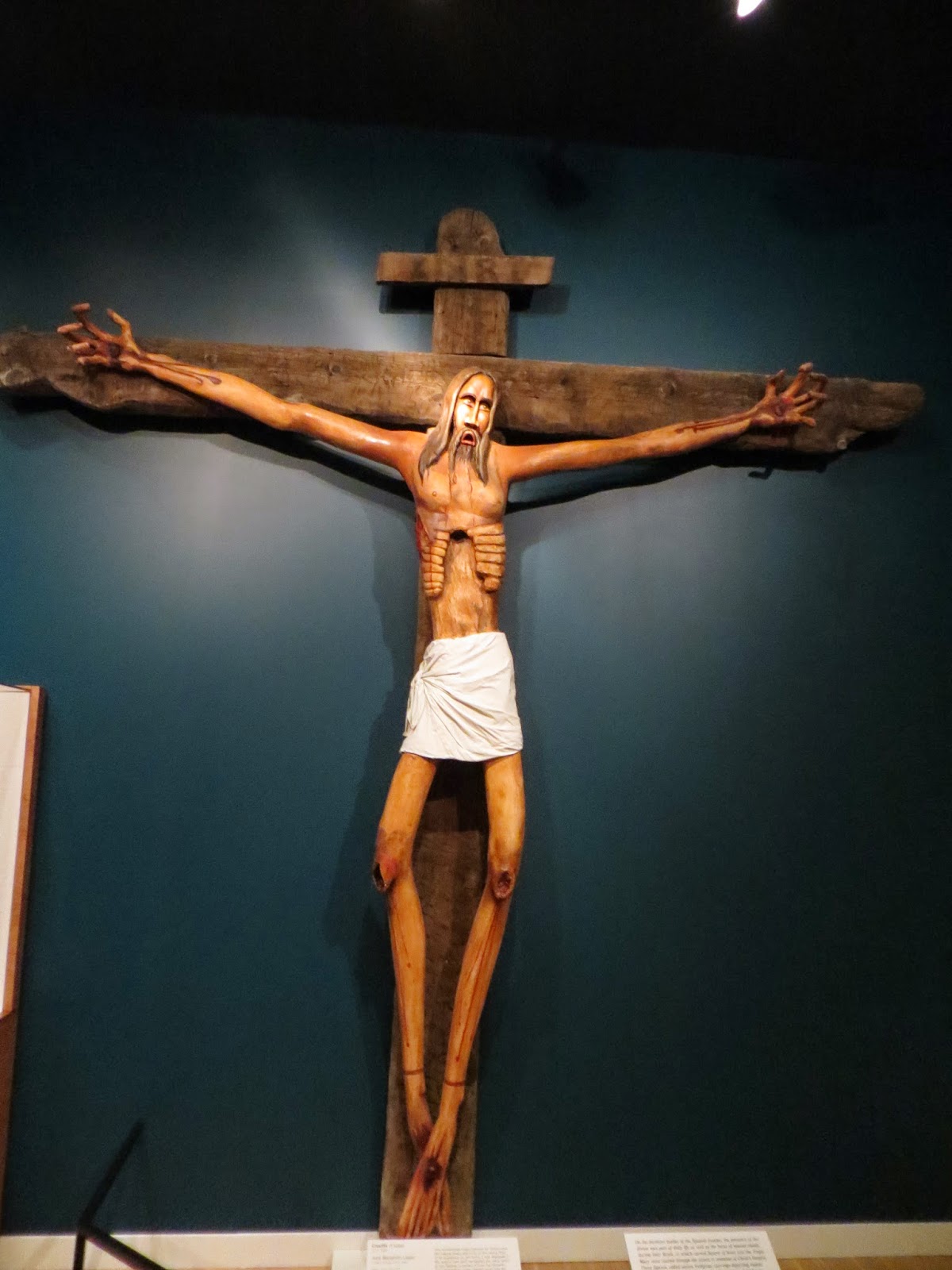First Things -- Paul's Creed
Earlier this week I wrote a post that suggested that it might be valuable for us to consider the witness of the early creeds. In making this suggestion, I was in no way implying that we should make creedal formulations tests of fellowship. At the same time, I am concerned that one of the reasons why progressive churches are struggling is that we do not know how to speak our faith -- and that starts in the pulpit. While I affirm the premise that the first witness we must make involves the way we live our lives, having the ability to say why we live the way we do is important. Can God-talk get in the way of doing what is good and right? Perhaps, but it's not necessary.
Since my denominational tradition sees itself as non-creedal (we require only that one make the Good Confession -- Matthew 16:16),, but has historically sought to root itself in the biblical witness, perhaps we should start with the creedal statements found in scripture. One of the clearest and earliest summaries is found in 1 Corinthians 15, a section of that letter that focuses on the resurrection. It is important to note here that Paul, writing only two decades after we assume Jesus was crucified and probably two decades before the first of the canonical gospels was written, focuses on the death, burial, and resurrection of Jesus. Paul is not that interested in Jesus' teachings or the way he lived his life -- but this set of events and the later appearances of Jesus to a significant number of followers, himself being the last.
15 Now I would remind you, brothers and sisters,[a] of the good news[b] that I proclaimed to you, which you in turn received, in which also you stand, 2 through which also you are being saved, if you hold firmly to the message that I proclaimed to you—unless you have come to believe in vain.
3 For I handed on to you as of first importance what I in turn had received: that Christ died for our sins in accordance with the scriptures, 4 and that he was buried, and that he was raised on the third day in accordance with the scriptures,5 and that he appeared to Cephas, then to the twelve. 6 Then he appeared to more than five hundred brothers and sisters[c] at one time, most of whom are still alive, though some have died.[d] 7 Then he appeared to James, then to all the apostles. 8 Last of all, as to one untimely born, he appeared also to me. 9 For I am the least of the apostles, unfit to be called an apostle, because I persecuted the church of God. 10 But by the grace of God I am what I am, and his grace toward me has not been in vain. On the contrary, I worked harder than any of them—though it was not I, but the grace of God that is with me. 11 Whether then it was I or they, so we proclaim and so you have come to believe. (1 Corinthains 15:1-11 NRSV).
Does the historical Jesus matter? Yes. Should we heed his teachings? Yes. I'm not arguing against that. But I think we need to also hear the rest of the early Christian witness, one that emerged early on. Fred Craddock and Eugene Boring, both distinguished Disciple Bible scholars, make this comment on this particular confession.
For Paul, the resurrection is not one topic among others, but is integral to several of the ethical problems the Corinthians had asked about or on which they had challenged him. Some of them had minimized or eliminated the future dimension of the Christian faith, supposing that they already lived the full life of the Spirit and were like the angels.
What Paul shares in this passage is likely the creed or summary statement of the Christian faith that he had been taught at his conversion. As Craddock and Boring note -- for Paul this isn't just abstract theology -- it has important ethical implications. And so they write:
Thus, 15:3-5 is very ancient Christina tradition, formulated within a very few years of Jesus' death and resurrection . It is crucial to see that this earliest summary of the Christian faith does not portray the "life and teachings of Jesus" as a great hero to be emulated, but refers to his death (his truly human life) and his resurrection (God's act, not an "accomplishment:" of Jesus). The death and resurrection stand for the Christ event as a whole, the act of God for human salvation. This is the gospel, the good news, of God's act in Christ. ( Boring and Craddock, The People's New Testament Commentary, p. 541).
Sunday I'm preaching from 1 Peter 3:13-22 a passage that calls for the reader to be ready to give their defense (witness) for their faith. While I don't believe that this involves trying to prove the truth of our faith commitment, it also doesn't mean that we should not, if we're in the position to do so, to move from faith to understanding. It is, as Disciples theologian Joe Jones puts it:
Faith involves believing something about God, believing that God is characterized in some definite ways. In particular it focuses on God's being characterized by the life of Jesus Christ. So, faith is always at least believe that God is characterized by the life of Jesus Christ. So, faith is always at least belief that Gd is characterized as the Almighty Creator of all things, as the Reconciling Lover in Jesus Christ, and as the Redeeming Spirit. (Joe Jones, A Lover's Quarrel: A Theologian and His Beloved Church, p. 7).
What then is of first importance and why is it of first importance?

Comments